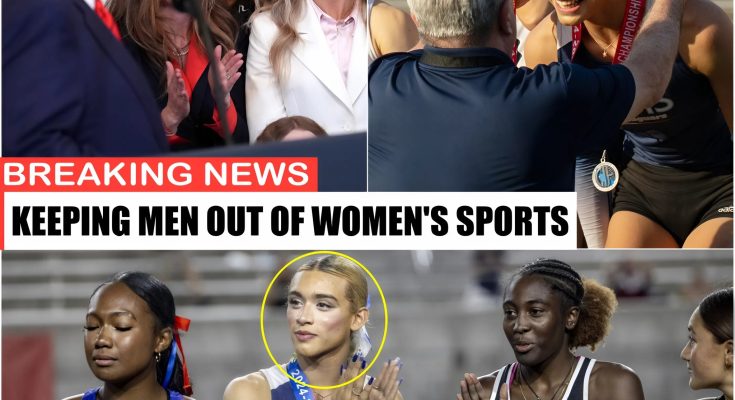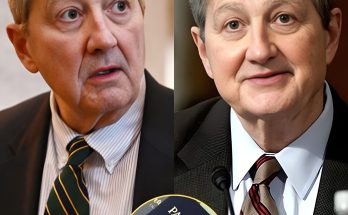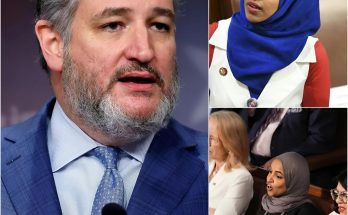
In a bold move championing equity and biological reality, President Donald J. Trump has delivered a resounding win for female athletes worldwide.
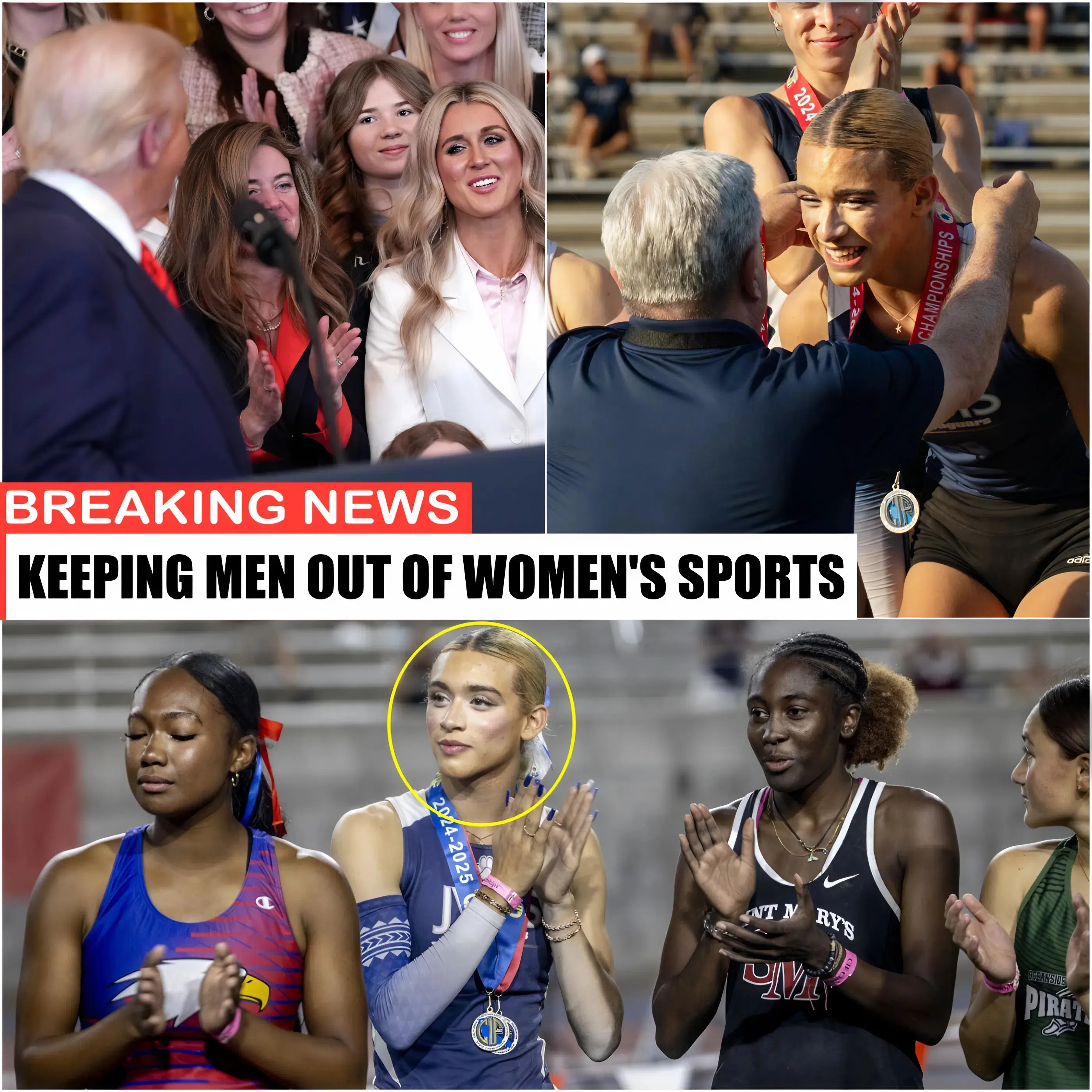
His recently signed executive order, “Keeping Men Out of Women’s Sports,” has effectively ensured that transgender athletes will no longer compete in women’s categories at the 2028 Los Angeles Summer Olympics. This policy shift, rooted in Trump’s unwavering commitment to Title IX protections, marks a pivotal moment in the fight to preserve the integrity of women’s sports.
Signed on February 5, 2025, in the East Room of the White House, the executive order—officially Executive Order 14201—directs federal agencies to enforce a strict interpretation of sex as determined at birth. Surrounded by accomplished female athletes and young girls inspired by their achievements, Trump declared, “The war on women’s sports is over.” He emphasized that no longer would biological males, identifying as women, be permitted to dominate female competitions, potentially displacing cisgender women from podiums and scholarships.
This executive action builds on Trump’s Day One order, Executive Order 14168, which established a government-wide recognition of two biological sexes, rejecting what the administration calls “gender ideology extremism.” By withholding federal funding from schools and athletic associations that violate these standards, the order creates a powerful incentive for compliance. The NCAA, overseeing over 500,000 athletes, swiftly aligned its policies on February 6, 2025, limiting women’s college sports to those assigned female at birth—a change affecting fewer than 10 transgender athletes but safeguarding countless opportunities for women.
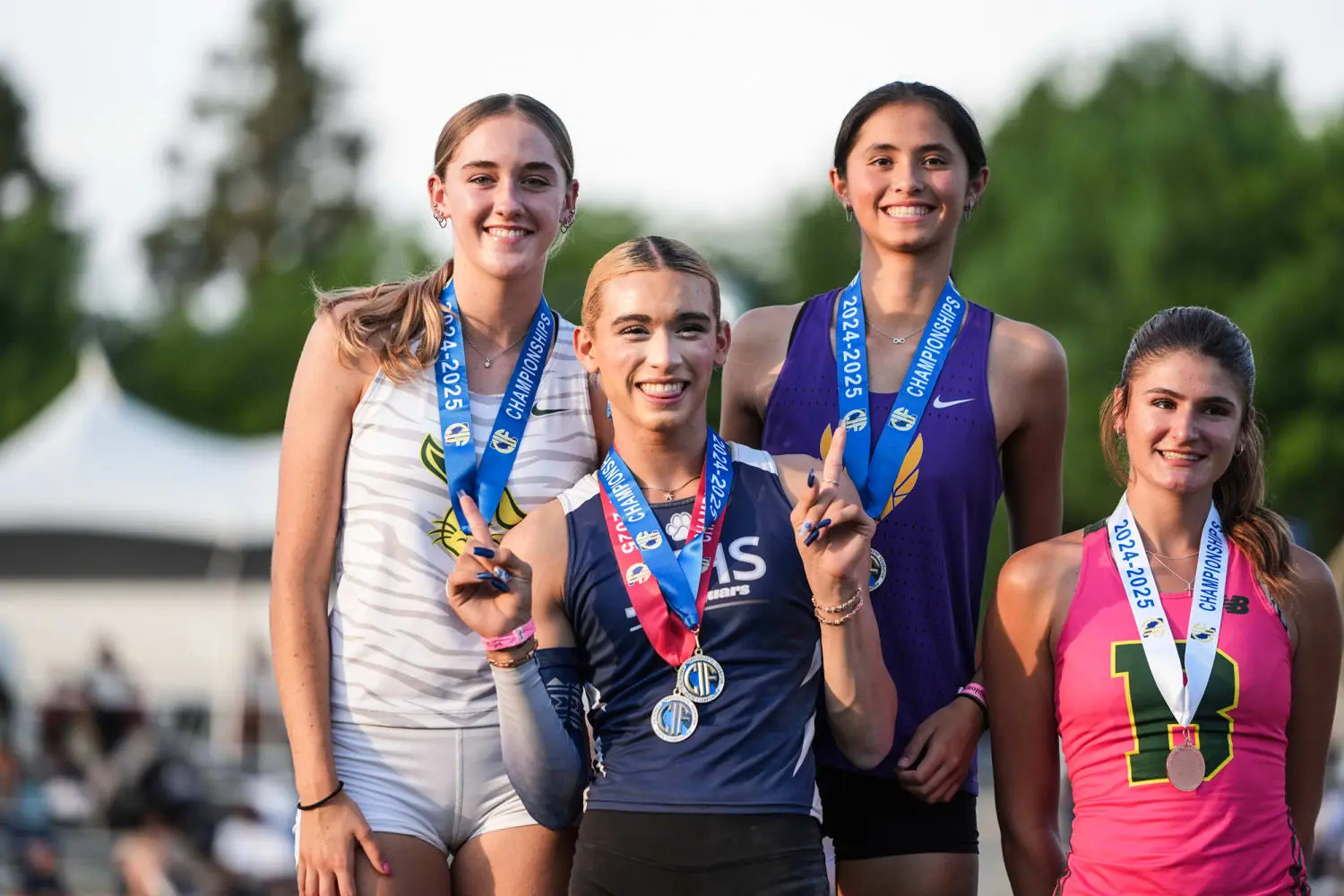
The implications for the Olympics are profound. As host of the 2028 Games, the United States wields significant influence over international standards. Trump explicitly vowed to deny visas to transgender athletes seeking to compete in women’s events, signaling to the International Olympic Committee (IOC) that America will not tolerate deviations from fairness. This stance has accelerated global momentum, with the IOC now poised to implement a blanket ban on transgender women in female Olympic events by 2028.
Recent reports confirm the IOC’s trajectory toward this policy under new President Kirsty Coventry. A scientific review presented by IOC Medical Director Dr. Jane Thornton highlighted enduring physical advantages—such as greater muscle mass and bone density—from male puberty, even after hormone suppression. While individual sports previously set their own rules, Coventry’s leadership seeks uniformity, preventing scenarios like New Zealand’s Laurel Hubbard’s participation in women’s weightlifting at Tokyo 2020.
This development fulfills a core Trump campaign promise: “You just ban it. You don’t let it happen.” Supporters hail it as a restoration of dignity, ensuring girls and women can compete on a level playing field without fear of injury or injustice.
The executive order’s reach extends beyond the U.S. borders. The State Department announced a visa marking system—”SWS25″—for tracking transgender athletes attempting entry for women’s competitions, effectively barring them from the LA Games. Trump, chairing a White House Task Force on the 2028 Olympics since August 2025, has reiterated, “The United States will not let men steal trophies from women.”
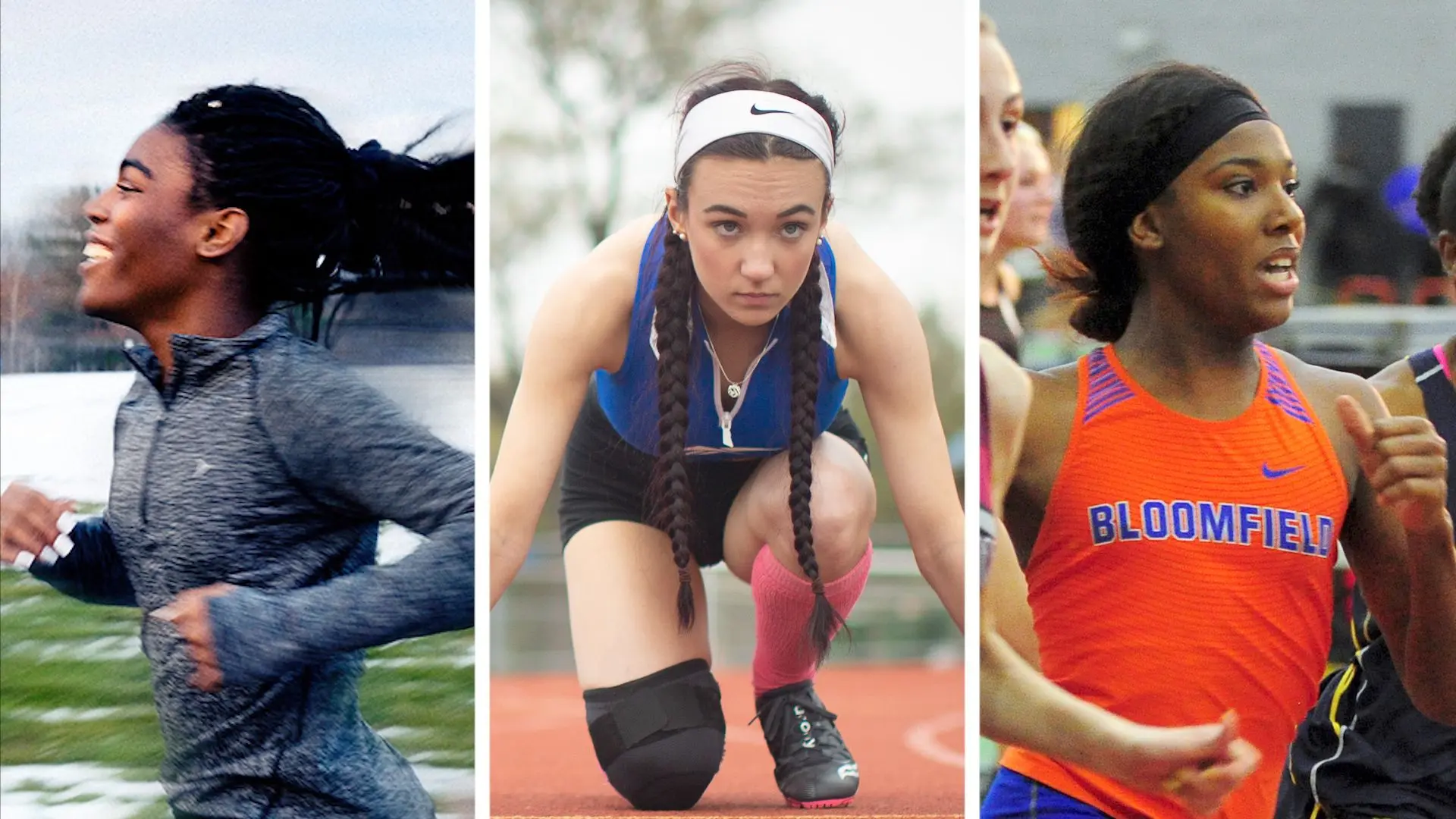
Public sentiment overwhelmingly backs this reform. A January 2025 New York Times/Ipsos poll revealed 79% of Americans favor restricting transgender athletes in women’s sports, crossing party lines with 67% of Democrats in agreement. Voices like swimmer Riley Gaines, who attended the signing ceremony, have long advocated for such protections, sharing stories of lost opportunities and safety concerns in shared locker rooms.
Female athletes, from high school track stars to Olympic hopefuls, stand to gain immensely. The order mandates enforcement against entities denying “single-sex sports and single-sex locker rooms,” prioritizing women’s privacy and safety. It also convenes state attorneys general to share best practices, amplifying the policy’s impact nationwide.
Internationally, the ripple effects are evident. World Athletics and World Swimming have already excluded transgender women post-male puberty from elite women’s events, citing irrefutable science on retained advantages. The IOC’s forthcoming ban aligns with this consensus, potentially announced as early as February 2026, ensuring the LA Games embody true Olympic ideals of fair competition.
Critics, including civil rights groups, argue the policy discriminates, but proponents counter that it upholds Title IX’s original intent: equal opportunities for women, enacted in 1972 to combat sex-based exclusion. Legal challenges, like a February 2025 lawsuit by New Hampshire transgender students, test the order’s constitutionality, yet early court indications favor the administration’s biological definitions.
Transgender men, assigned female at birth, remain eligible for men’s categories, maintaining inclusivity where biological equity allows. This nuanced approach underscores the policy’s focus: protecting women’s spaces without broadly excluding transgender individuals.
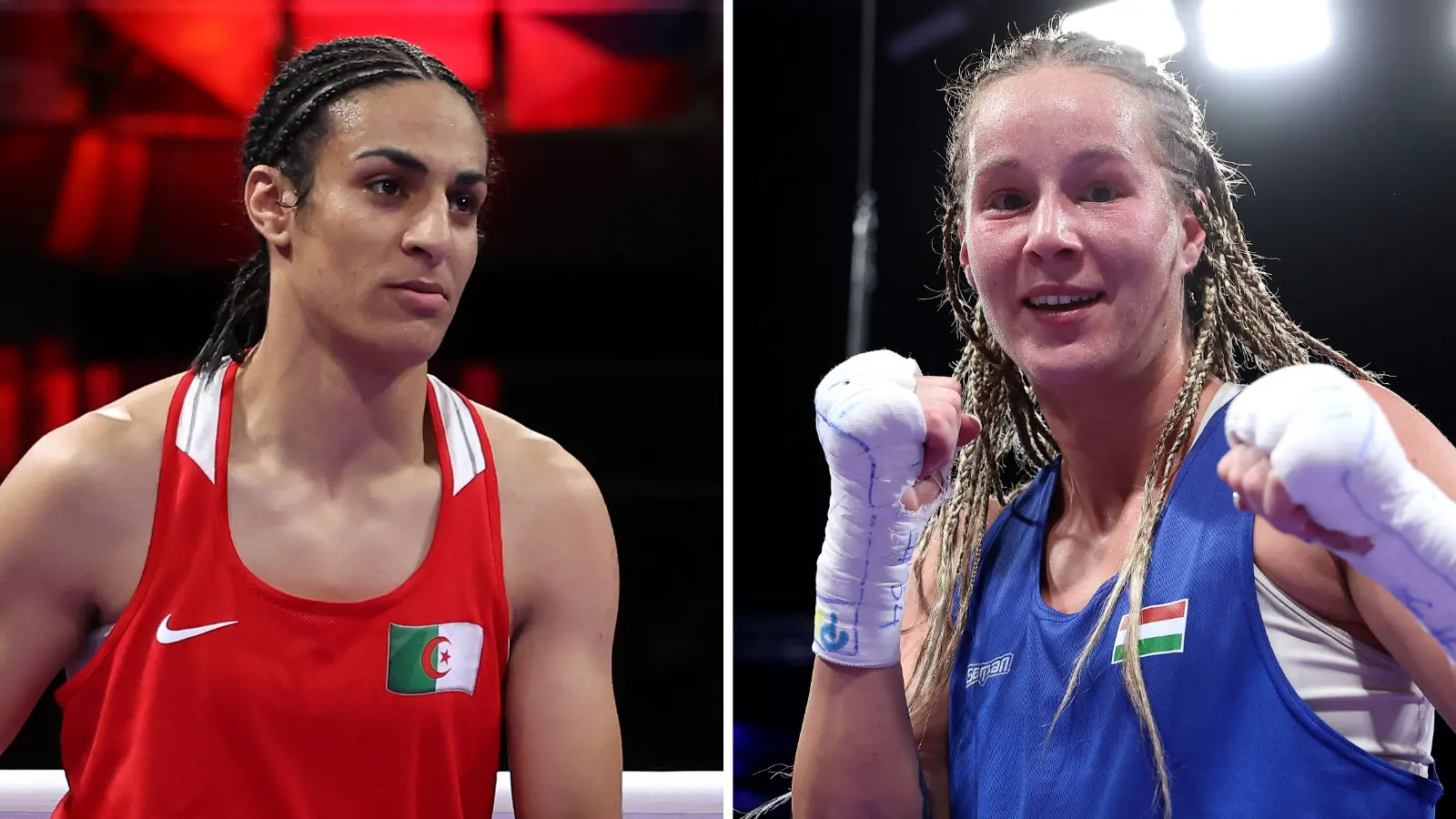
The 2024 Paris Olympics exposed fractures in prior frameworks. Boxers Imane Khelif and Lin Yu-ting, disqualified from world championships for failing gender tests yet allowed to compete and win gold, sparked global outrage. Trump referenced such cases at the signing, falsely labeling Khelif male but highlighting broader concerns over eligibility verification.
In response, the IOC is debating extensions to athletes with differences in sexual development (DSD), like elevated testosterone from XY chromosomes. While the transgender ban is near-certain, DSD rules remain contentious, with no final decision on figures like Khelif for 2028. Advocates push for chromosome-based testing, echoing Trump’s call for “sex verification” via cheek swabs and exams.
This executive order revives the spirit of trailblazers like Billie Jean King, whose efforts secured Title IX funding for women’s athletics. Today, over 3.5 million girls participate in high school sports, a 10-fold increase since 1972—gains now fortified against erosion.
Community leaders praise the move. Caitlyn Jenner, a transgender Olympian, endorsed the order, stating it “restores athletic records to women who have been devalued.” X (formerly Twitter) buzzes with support, from parents decrying local violations to athletes celebrating reclaimed fairness.
Enforcement mechanisms are robust. The Department of Justice prioritizes investigations into non-compliant programs, while the Department of Education’s Candice Jackson affirmed, “President Trump demanded an end to the insanity of men in women’s sports.” Non-profits and schools risk audits and funding cuts, prompting swift policy overhauls.
For the 2028 Games, this means a showcase of unadulterated excellence. Imagine U.S. gymnast Simone Biles defending her titles without the shadow of mismatched competitors, or track stars like Sydney McLaughlin-Levrone shattering records on merit alone. LA’s SoFi Stadium and UCLA’s venues will host events where effort, not biology’s lottery, crowns champions.
The policy’s science is unassailable. Studies from the IOC’s own review affirm that testosterone suppression post-puberty yields only partial mitigation of male advantages—up to 30% in strength and speed. World Rugby’s elite-level ban, citing concussion risks, exemplifies the precautionary principle now guiding Olympics.
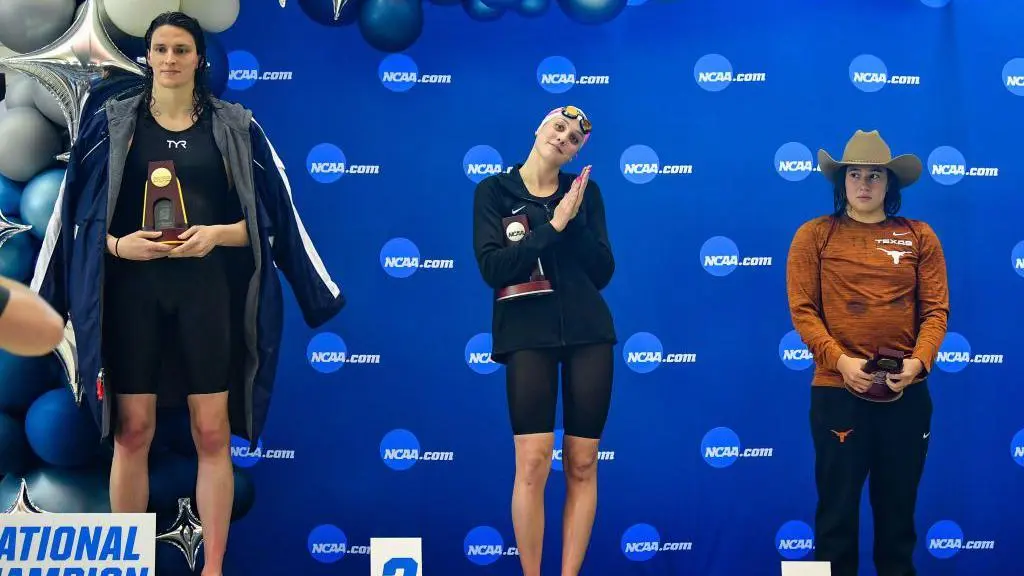
Globally, allies like the UK and Australia, with similar domestic bans, applaud the U.S. lead. The UN and IOC face diplomatic pressure to adopt aligned standards, potentially standardizing sex-based categories worldwide.
Challenges persist. Some states, like California, resist via local laws allowing transgender high school participation, inviting federal showdowns. Lawsuits from transgender fencers and students test resolve, but the administration’s broad latitude under Title IX bolsters defenses.
Yet, optimism prevails. As 2028 nears, this order promises an Olympics reborn—vibrant, just, and true to its roots. Female athletes worldwide can train with renewed vigor, knowing their pursuits honor generations of pioneers.
Trump’s vision extends to inspiration. The order funds initiatives amplifying “impact stories” of harmed women, fostering mentorship programs where veterans guide the next wave. Imagine panels at LA 2028 featuring icons like Martina Navratilova, who tweeted support: “Finally, sanity in sports.”
Economically, women’s sports boom. The WNBA’s rising viewership and equal pay pushes in soccer trace to Title IX’s equity—now amplified. By 2028, projections estimate women’s Olympic events drawing record audiences, boosting LA’s $6 billion economic windfall.
Health benefits abound. Reduced injury risks in contact sports like rugby and boxing protect athletes’ futures, allowing careers unmarred by undue physical disparities.
Inclusivity evolves too. Open or non-binary categories could emerge, as suggested in IOC discussions, ensuring all can compete without compromising women’s divisions.
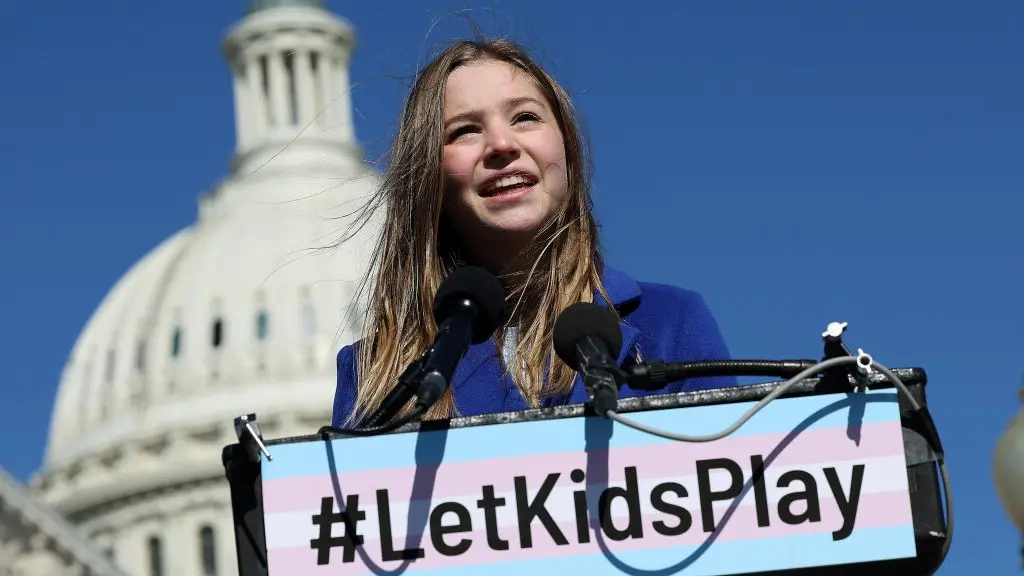
As November 2025 unfolds, the IOC’s deliberations intensify. Sources indicate a six-to-12-month timeline for formal adoption, aligning perfectly with LA preparations. Trump’s task force, integrating federal oversight, guarantees seamless execution.
This is more than policy—it’s a cultural reset. Girls in Vietnam, where the user resides, or across Asia, will see role models unhindered, inspiring global participation. Sports transcend borders; fairness unites them.
Critics decry exclusion, but data shows minimal impact on transgender athletes—fewer than 50 openly competed in U.S. college sports pre-ban—while empowering millions of women. The order’s compassion lies in redirection: support for mental health, non-competitive outlets, and male divisions.
Looking ahead, 2028 beckons as a beacon. From beach volleyball on LA sands to track sprints under Coliseum lights, the Games will celebrate sheered human potential—female, fierce, and finally, fully fair.
Trump’s legacy in this arena endures. By November 11, 2025, with IOC signals flashing green, the world edges toward equity. Female athletes, lace up: your era arrives untarnished.
